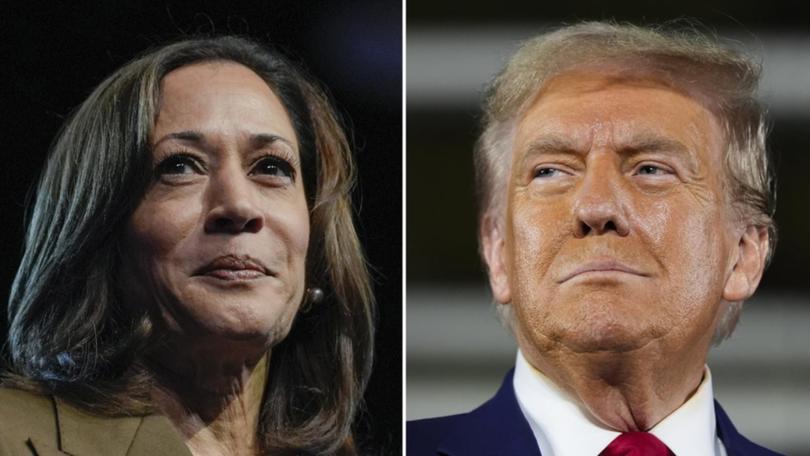US election: Financial markets begin the week with caution ahead of hotly-contested presidential election
Uncertainty about the outcome of the hotly-contested US presidential election saw financial markets begin the week on a cautious note.

Financial markets began the week on a cautious note, with shares in Asia subdued while the dollar eased slightly ahead of a busy week headlined by the US presidential race which is set to come down to the wire.
The week will also provide investors with global monetary policy catalysts with rate decisions from the Federal Reserve, the Bank of England (BoE), the Reserve Bank of Australia (RBA), Riksbank and Norges Bank.
China’s National People’s Congress (NPC) standing committee meets from Monday to Friday and will be closely watched for further details of a raft of stimulus measures that were announced recently.
Sign up to The Nightly's newsletters.
Get the first look at the digital newspaper, curated daily stories and breaking headlines delivered to your inbox.
By continuing you agree to our Terms and Privacy Policy.Trading was thinned in Asia on Monday with Japan out for a holiday, but MSCI’s broadest index of Asia-Pacific shares outside Japan rose 0.7 per cent, recovering from its fall to a five-week low on Friday.
US stock futures though lost ground, with Nasdaq futures falling 0.11 per cent, while S&P 500 futures eased 0.14 per cent.
The dollar was on the back foot, with the euro last 0.4 per cent higher at $US1.0877 ($A1.6496). The yen jumped 0.7 per cent to 151.88 per dollar.
Dealers said the dip in the dollar might be linked to a well-respected poll that showed Democratic candidate Kamala Harris taking a surprise three-point lead in Iowa, thanks largely to her popularity with female voters.
Still, Harris and Republican candidate Donald Trump remain virtually tied in opinion polls ahead of Tuesday’s election and the winner might not be known for days after voting ends.
“At the start of last week, we were pricing about a 48 per cent chance of a red sweep ... that’s fallen to around 36 per cent this morning according to Polymarket. So, there’s been a significant easing around the probability of a Republican sweep ... the Democrats have certainly closed the gap,” said Tony Sycamore, a market analyst at IG.
“As a result of that, you’re seeing some of the dollar ‘Trump trade’ rally start to come out of the market.”
Analysts believe Trump’s policies on immigration, tax cuts and tariffs would put upward pressure on inflation, bond yields and the dollar, while Harris was seen as the continuity candidate.
Cash trading of US Treasuries was closed in Asia due to the Japan holiday, but futures rallied 10 ticks.
Besides the US election, China’s NPC’s standing committee meeting will also be at the top of investors’ radar.
Chinese stocks got off to a positive start on Monday, with the CSI300 blue-chip index gaining 0.2 per cent, while the Shanghai Composite Index ticked up 0.04 per cent.
Hong Kong’s Hang Seng Index rose 0.4 per cent.
Reuters reported that the country is considering approving the issuance of over 10 trillion yuan ($US1.4 trillion) in extra debt in the next few years to revive its fragile economy at the meeting, a fiscal package which is expected to be further bolstered if Trump wins the election.
“Tackling local government debt is good for financial stability, but it mostly involves transferring debt onto the central government’s balance sheet, so it won’t have a big impact on demand,” said Leah Fahy, a China economist at Capital Economics.
“The same is true of planned capital injections into large state banks. As a result, any additional borrowing approved for these policies won’t provide much of a fiscal boost.”
Among the slew of central bank meetings this week, the Fed takes centre stage, with markets leaning toward a 25-basis-point rate cut.
“Based on current data, we see no reason for (the FOMC) to rush through rate cuts,” said analysts at ANZ.
“The election and uncertainty over the future fiscal path also support arguments for caution in recalibrating monetary policy.”
The BoE meets on Thursday and is similarly expected to ease rates by 25 bps, though its decision has been complicated by a sharp sell-off in gilts following the Labour government’s budget last week, which also dragged the pound lower.
Sterling was last 0.4 per cent higher at $US1.2971 ($A1.9672), helped by a weaker dollar. It had fallen 0.3 per cent last week.
In commodities, oil prices rose more than $US1 after OPEC+ said on Sunday it would delay a planned December output hike by one month.
Brent futures rose $US1.18 ($A1.79) per barrel, or 1.61 per cent, to $US74.28 ($A112.65).
US West Texas Intermediate (WTI) crude also gained $US1.18 ($A1.79) a barrel, or 1.7 per cent, to $US70.67 ($A107.18).
Spot gold ticked 0.1 per cent higher to $US2,737.75 ($A4,152) an ounce, though was some distance away from its recent record peak.
